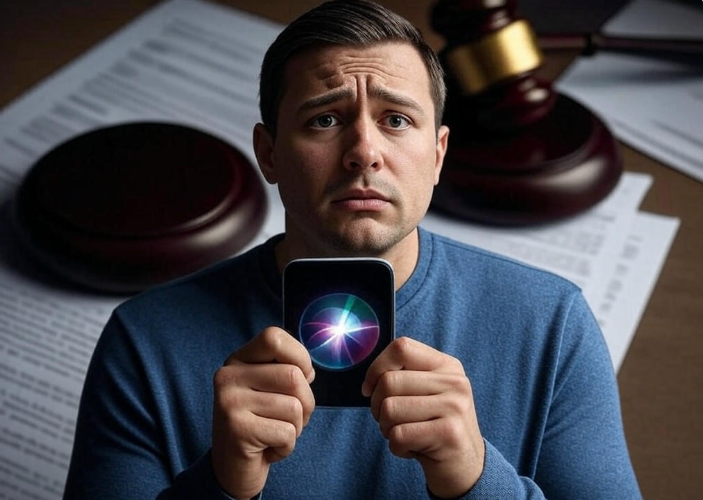On May 5, 2025, Microsoft officially pulled the plug on Skype, marking the end of a 21-year journey for a platform that once revolutionized how we connect across the globe. As reported by The Washington Post, the tech giant has shifted its focus to Microsoft Teams, urging Skype users to migrate to the newer platform. This shutdown, announced earlier in March, has sparked a wave of nostalgia, frustration, and debate among users, while raising broader questions about the lifecycle of digital tools and the future of online communication. In this blog post, we’ll explore Skype’s legacy, the reasons behind its closure, the implications for users, and what this shift reveals about the evolving landscape of digital connectivity in 2025.
A Pioneer of the Digital Age
Skype’s story began in 2003 in Tallinn, Estonia, when founders Niklas Zennström and Janus Friis introduced a platform that leveraged Voice over Internet Protocol (VoIP) technology to enable free calls between users. At a time when international calls were prohibitively expensive, Skype offered a groundbreaking solution: free, internet-based communication that bypassed traditional phone companies. By 2011, when Microsoft acquired Skype for $8.5 billion, the platform had already become a household name, connecting millions through voice and video calls. At its peak, Skype boasted over 300 million monthly active users, a testament to its global impact.
For many, Skype was more than just a tool—it was a cultural touchstone. Millennials reminisce about late-night calls with friends, long-distance relationships sustained through pixelated video, and the iconic bubbly ringtone that signaled a connection across time zones. As technology journalist Will Guyatt noted in The Washington Post, Skype “broadened horizons” by making it simple to maintain relationships with those far away. It wasn’t just a communication app; it was a bridge that shrank the world, embodying the early internet’s promise of openness and accessibility.
The Decline of a Giant
Despite its early success, Skype’s dominance began to wane over the years. The rise of competitors like WhatsApp, Zoom, and Slack—platforms better suited for the smartphone era—exposed Skype’s limitations. Its underlying technology, originally designed for desktops, struggled to adapt to mobile-first users. During the COVID-19 pandemic, when demand for video conferencing soared, Skype failed to capitalize on the moment. Instead, Microsoft prioritized Teams, a platform launched in 2017 that quickly gained traction in both enterprise and consumer markets. By 2025, Teams had grown to 320 million monthly active users, while Skype’s user base had dwindled to around 36 million, according to Microsoft’s 2023 figures.
Microsoft’s decision to retire Skype reflects a strategic shift to consolidate its communication offerings. As Jeff Teper, Microsoft’s president of collaborative apps and platforms, explained, focusing on Teams allows the company to “streamline” its services and “drive faster innovation.” Teams offers a broader suite of features, including video calls, group chats, file sharing, and calendar management, making it a more versatile hub for both personal and professional use. However, this consolidation comes at a cost, as Skype’s shutdown has left many users feeling abandoned, particularly those who relied on its unique features, like affordable international calling.
User Reactions: Nostalgia and Frustration
The announcement of Skype’s closure, followed by its final shutdown on May 5, 2025, prompted a flood of reactions from users. On social media platforms like X, many expressed nostalgia for Skype’s heyday, sharing memories of its role in pivotal life moments—first jobs, long-distance romances, and family reunions. “Goodbye, Skype… You stuttered, you froze, and you disconnected… But, you served us well in times of need,” one user wrote, capturing the bittersweet sentiment shared by many.
However, not all reactions were fond farewells. A significant point of contention has been Microsoft’s handling of Skype credits. Users like Karen Griffin, a retired attorney featured in The Washington Post, expressed frustration over the company’s refusal to refund unused funds in Skype accounts. Griffin, who had $24.74 tied up in her account for international calls, argued that Microsoft should return the money, especially since the service she prepaid for is no longer available. Microsoft has instead offered to let users apply their credits to calls within Teams, but this solution feels inadequate to many, particularly those uninterested in adopting a new platform.
The transition to Teams has also raised practical concerns. Some users worry about the learning curve, especially for older or less tech-savvy individuals. One commenter on Reddit humorously noted the challenge of “teaching my technologically inept parents how to use a new app,” a sentiment that resonates with many who valued Skype’s simplicity. Additionally, Teams’ resource-heavy nature—consuming significantly more RAM than Skype, as noted by some users—has sparked concerns about performance, particularly on older devices.
The Broader Implications
Skype’s shutdown raises important questions about the lifecycle of digital products and the responsibilities of tech companies to their users. When a service like Skype shuts down, users are often left in the lurch, forced to adapt to new platforms or lose access to funds and data. Consumer Reports’ technology advocacy team, as cited in The Washington Post, argues that companies like Microsoft should offer refunds or credits across their services when discontinuing a product. This perspective challenges the tech industry’s tendency to prioritize innovation over user equity, a pattern seen in other closures, such as Amazon’s discontinuation of its Halo fitness bracelet in 2023, where the company did offer refunds.
From a cybersecurity perspective, Skype’s retirement also has implications for digital forensics. As noted in a post by Belkasoft on X, Skype’s data—such as chat histories and call logs—will remain accessible until January 2026, providing opportunities for forensic analysis. This is particularly relevant given Skype’s historical significance as one of the first major chat apps to implement end-to-end encryption, a move that prompted global authorities to explore spyware solutions, according to a post by @lorenzofb on X. While this claim reflects sentiment on social media and lacks corroboration, it underscores Skype’s role in shaping the privacy debate.
The Future of Digital Communication
As Skype fades into history, Microsoft Teams is poised to take center stage, offering a modern alternative with enhanced features. Users can migrate their Skype contacts and chat histories to Teams, and the platform supports many of the same core functions, including video calls and messaging. For those seeking alternatives, options like WhatsApp, Signal, Zoom, and Google Meet provide robust solutions for video calls and group chats, each with its own strengths and limitations.
Looking ahead, the closure of Skype highlights broader trends in digital communication. The lines between consumer and enterprise tools are blurring, as platforms like Teams aim to serve both markets. The rise of AI-powered features, such as Microsoft’s integration of Copilot into Teams, points to a future where communication tools are increasingly intelligent and integrated with broader ecosystems. However, this shift also raises questions about accessibility, privacy, and the digital divide, as not all users may have the resources or knowledge to adapt to these changes.
Insights
The end of Skype on May 5, 2025, marks the close of a significant chapter in the history of digital communication. For over two decades, Skype connected people across borders, reshaped relationships, and set the stage for the video-calling revolution that followed. Its shutdown, while a strategic move by Microsoft to focus on Teams, has left a void for many users who cherished its simplicity and affordability. As we move forward, the lessons from Skype’s rise and fall—about innovation, user trust, and the impermanence of digital tools—remain critical. In a world where technology evolves rapidly, staying connected requires not just new platforms, but a commitment to ensuring no one is left behind in the transition.



